Each June there is a national awareness event headlined “National Safety Month,” sponsored by the National Safety Council. The Garage Door industry takes that a step further with Garage Door Safety Month, to emphasize the need to properly maintain your garage door and all of its moving parts. This is not simply self-promotion (OK, maybe a little bit) but a key emphasis that garage doors, while easy to ignore when they are working well, can become major problems and even safety hazards when they aren’t. At ADS Automatic Door Specialists, this idea is not a slogan – it’s something we keep at the very top of our list of professional responsibilities, day in and day out, throughout the year.
ADS Automatic Door Specialists makes every effort to live up to the promise of its name: We specialize in anything and everything to do with garage doors, both automatic and manually operated, as well as driveway and side gates. If there is something that goes wrong or is about to, we are your go-to source for installation, maintenance, and repair. Our A+ BBB rating and Yelp testimonials back up our claim of over 35 years of service excellence. We could provide a lengthy list of points to help you get the full picture, but we’ve narrowed it here to three main ones.
- Safety:
First and last, safety. The most important thing is to prevent injuries. This is two-fold: first, ensuring you and others are operating the door correctly, and second, making sure, on at least a monthly if not weekly basis, that it is functioning in a fully safe way. Make sure you keep hands, limbs, and clothing away from moving parts or joints that may constrict or pinch. The force generated by operating the door, combined with the door’s weight, is more than enough to cause injury, especially to children. Important: teach your children about garage door safety, especially staying away from doors when they’re opening or closing, and never attempting to cross underneath a moving door.
All garage doors manufactured after 1993 are required to have sensors. Federal law requires manufacturers of residential garage door operators to have an automatic, inherent reverse feature that reverses direction two seconds after sensors pick up a physical obstruction. They also must have a 30-second reverse timer that triggers the opening motion 30 seconds after sensing the door has not settled into the fully closed position. If you have a garage door older than 1993, we can retrofit a sensor for you.
You must also have a secondary entrapment protection system, which can be an attached external device (such as an edge sensor or photoelectric eye) or an inherent secondary system (typically a sectional door with automatic operator combination, with the entire door system acting as a force-sensing device).
Sensors should be installed and tested professionally. You can test them yourself by placing a non-fragile object (like an empty cardboard box or wadded-up sweatshirt) beneath the garage door when you close it. If the sensors aren’t working right, the obstruction with not trigger descent reversal.
- Security:
You should have at least two or even three secure ways of opening and closing your garage door in the event of a power outage, a broken operator or door mechanism, or even a lost or misplaced remote. Learn how to open and close your garage with a backup hand-held device, a keypad (usually installed along the door frame), or utilizing a manual override cord (the dangling red cord) to open the door when there is no power. Make sure to test each device regularly to ensure you can manage it in case of a blackout or other emergency.
- It’s The Whole Garage, Not Just the Door:
Plan how to optimize your garage space and the flow of foot traffic. A garage can too easily become little more than haphazard storage space. Is that the best usage of your valuable square footage? Make sure you maintain clear, wide pathways that can be traversed even in darkness. If heavy boxes are stacked along the walls or on shelves, take precautions to ensure they won’t topple or fall. If you must store flammable or toxic materials in your garage, think through the best ways to minimize the risk of fire or poisoning. You may be among those who do use their garage for the designed purpose: parking cars. Measure the space needed to do this without damaging your car or stored property. There are simple techniques like a ping pong ball on a cord to let you know you’re as close to the wall as you should go.
Today’s garage door and opener packages integrate seamlessly with the “smart” systems that are transforming our home electronics. They give you better control of your home environment and added security – such as checking whether or not you remembered to close the garage door, or seeing via your smartphone if someone is operating the door in your absence. Many openers will automatically set a new code each time the door is used, preventing criminal electronic access.
To sum it all up: don’t neglect regular inspections, and don’t ignore problems. The trained specialists at ADS Automatic Door Specialists will, for a surprisingly reasonable fee, come out and complete a thorough check-up, looking for things you may not be aware of or requiring equipment you may not have. An annual professional tune-up will likely save you money in the long run by extending the operational life of your garage door and opener. It will also give you invaluable peace of mind in knowing your garage door is both safe and secure.

